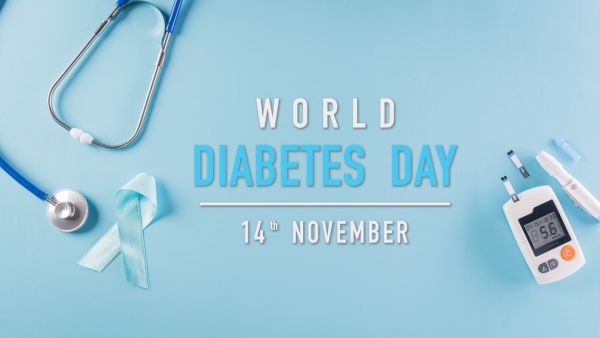ALBAWABA - When we hear the word “diabetes”, many of us think of an overweight person who eats a lot of sweets and junk food, and rarely moves. However, that could not be furthest from the truth, because diabetes does not have one single face. And if you really think about it, diabetes does not discriminate, and it can affect anyone.
According to WHO, around 422M people have diabetes around the globe, most of which live in low- and middle-income countries. Not only that but diabetes is said to be the cause of death for around 1.5M people each year. The numbers are staggering and have been increasing over the past decade. Therefore, proactive measures have to be taken to raise awareness and ensure people with diabetes have access to affordable and quality healthcare no matter where they are.
Perhaps one of the major issues that the world is facing when it comes to diabetes is the fact that access to insulin and associated devices is still not easy in many places across the globe. In its report, Keeping the 100-year-old promise: making insulin access universal, WHO highlights how even though around 63M people suffering from type 2 diabetes need insulin treatment, only half of them have access to it. While some might not have access to insulin treatment in the first place, others might have it available but are unable to afford it.
And while the world still has a long way to go to help make insulin and diabetes care accessible and affordable, many leading organizations, such as WHO, are already working on improving treatment availability, accessibility, and pricing, as well as emphasizing the need for more R&D support.
However, the work of the healthcare sector is only one part of the equation, and more has to be done when it comes to raising awareness and educating people about diabetes. Thus, to help ease the global diabetes health burden, communities and individuals have to understand that other non-pharmacological interventions are necessary.
While medication and insulin are not necessary for all diabetics, lifestyle changes are a must. These changes include making changes to a person’s diet and physical activity. On one side, cutting down on sugar and unhealthy foods is crucial, and on the other end maintaining an active lifestyle is also pivotal in managing diabetes.
But lifestyle changes do not end there, because a diabetic has to also take care of their mental well-being and be compassionate. The reality of things is that having diabetes can be distressing and difficult to manage. In fact, it is reported that those with diabetes are more likely to develop depression and anxiety. This comes to show that speaking up about the mental health struggles that come with diabetes is necessary.
One way to do so involves educating others about diabetes and how to support a loved one suffering from it. Empathizing and showing that we understand is also important to convey to diabetics that they are not alone.
In addition, it is pivotal that diabetics learn about different ways they can become kinder toward themselves. For example, letting go of the perfectionist mentality when managing diabetes is important. It is also pivotal to understand that we all fall back into old habits, the key is to understand our feelings and get back up every time we slip.
Learning about intervention is important, but what is even more important is prevention. And while there might not be an exact guidebook to tell you how to avoid getting diabetes type 2, there are certain preventive steps that you can take to better protect yourself. Here are some of these steps:
- Eat healthier foods
- Try to lose weight and maintain it
- Be more physically active
Diabetes is a real and chronic illness that can have a significant impact on a person’s mental and physical wellbeing. Therefore, it is instrumental that we raise awareness, educate people, and learn about different ways that we can not only manage it but also prevent it.
And so on World Diabetes Day, let us talk more about this disease, educate others about prevention, and remind those suffering from it that they are not alone.







